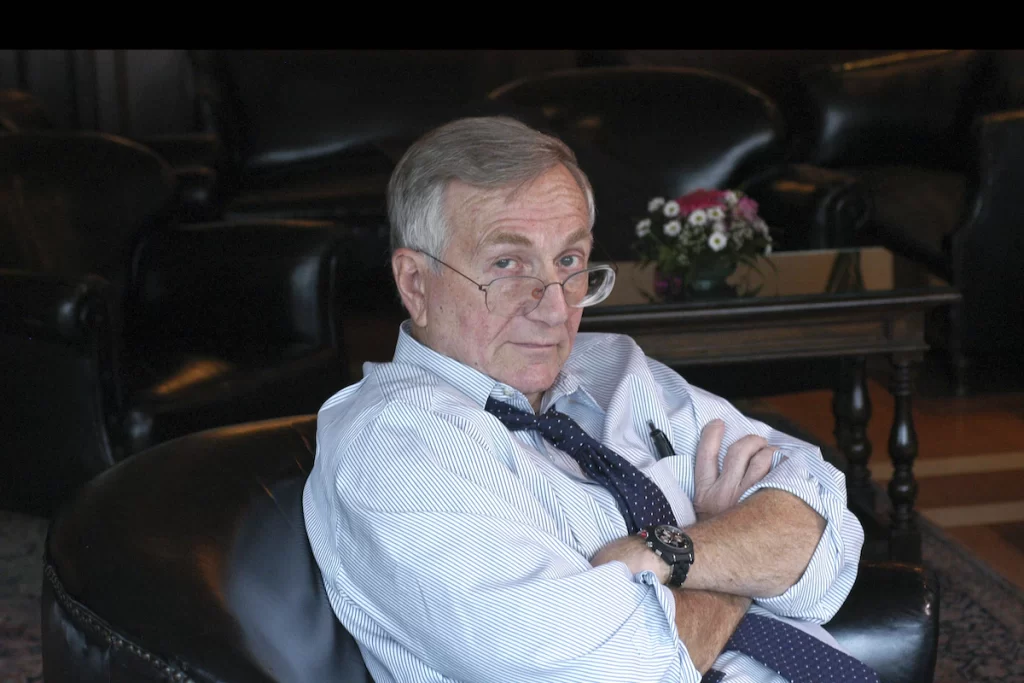
by Lev Tsitrin
Lee Smith’s critique of Seymour Hersh’s exposé of the destruction of Nord Stream undersea gas pipeline between Russia and Germany is all about politics. My reaction was different. Reading Mr. Hersh’s article woke up in me a strange beast: a literary critic.
Mr. Hersh was not just straightforwardly relaying a dry piece of information (i.e., “I happened to bump into a high-placed guy who participated in planning the attack on Nord Stream, and he told me that Americans did it, on Biden’s orders”). This would have been too prosy — like Shakespeare having Hamlet, right in Act 1, Scene 2, approach the king and, exclaiming “I know uncle that you killed my father!” put a dagger into him. Fair and satisfactory enough perhaps (in fact, from a perspective of strict justice, this would have been much more satisfactory than what actually unfolded in the play) — but where is the drama? And how to fill the remaining four and an half acts of the play?
Mr. Hersh has to play to the public too, and pump in some drama and suspense. This, of course, has perils for the narrator, being easy to overdo (causing a reaction like “methinks the lady doth protest too much”) — and what I found hard to believe, and in fact, ruining the story, was Mr. Hersh’s cloak-and-dagger way of finding the weak point at which to strike: “Sometime in March, a few members of the team flew to Norway to meet with the Norwegian Secret Service and Navy. One of the key questions was where exactly in the Baltic Sea was the best place to plant the explosives. Nord Stream 1 and 2, each with two sets of pipelines, were separated much of the way by little more than a mile as they made their run to the port of Greifswald in the far northeast of Germany. The Norwegian navy was quick to find the right spot, in the shallow waters of the Baltic sea a few miles off Denmark’s Bornholm Island.”
Now, I am strictly a civilian, and hence will believe anything told of daring acts of sabotage — but come on! Nord Stream was a civil engineering project planned by Russian and German firms, likely subjected to public environmental review, and constructed in the open. Its planning and route — not to mention engineering drafts that must have included the elevation of the seabed on which the pipeline was placed, being easily obtainable, why consult Norwegians, putting more people in the know than is strictly necessary? This is truly “protesting too much” — and to me at least, this seemingly minor detail completely ruined the story’s plausibility.
And then, on some really interesting things Mr. Hersh is strangely mum. Only three out of four pipelines (Nord Steam 1 and 2 are two pipelines each) were blown up. Was that as planned? Or did one of the mines fail to detonate? If so, why? Did it get detached, and drifted away? Was it, after the blast, removed for inspection (and to cover the tracks) — and if so, why did the same diver team not replace it with a good one, finishing the job? Or was there a deliberate decision to leave one functioning line intact? What was the rationale?
Let me venture some guesses. Perhaps it was a bureaucratic slippage, Nord Stream 1 and 2 being bunched together in the order to destroy them as “Nord Stream 1/2” — so the planners took it as an order to reduce the capacity by half and (Nord Stream 2 having never come into operation), kept one of the lines intact to obey the order? Or was it the deliberate order to convert “Nord Streams 1 and 2” into “Nord Stream 1/2” — and as such, a testimony to Biden’s sense of humor, exactly one half of the Nord Steam surviving after the blast? After all, one does occasionally see Biden sporting a rather infections grin (it would be unfair to deny it, no matter what you think of him) — so was blowing only three out of four Nord Stream lines a presidential joke? Did you ask your source about it, Mr. Hersh?
While I cannot accept the story as factual narrative — the Norwegian red herring makes it unbelievable — I think, in my capacity of a literary critic, that as a suspense story it does have some promise. But it needs more work. Mr. Hersh should go back to his source, whether real or imagined, and clarify those matters, filling in the reader on them.
There are times in any narrative when less is more. Or when more is more. Mr. Hersh’s story of Nord Stream is a prime illustration of both. It needs less, and it needs more. I hope Mr. Hersh will rework it, heeding this sage advice.
- Like
- Digg
- Del
- Tumblr
- VKontakte
- Buffer
- Love This
- Odnoklassniki
- Meneame
- Blogger
- Amazon
- Yahoo Mail
- Gmail
- AOL
- Newsvine
- HackerNews
- Evernote
- MySpace
- Mail.ru
- Viadeo
- Line
- Comments
- Yummly
- SMS
- Viber
- Telegram
- Subscribe
- Skype
- Facebook Messenger
- Kakao
- LiveJournal
- Yammer
- Edgar
- Fintel
- Mix
- Instapaper
- Copy Link









